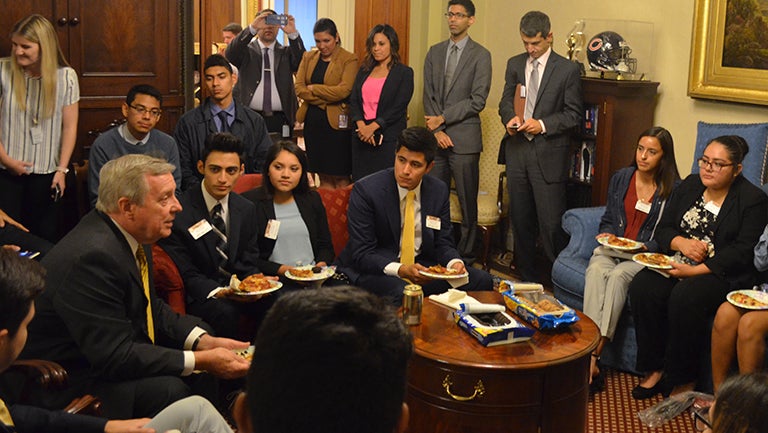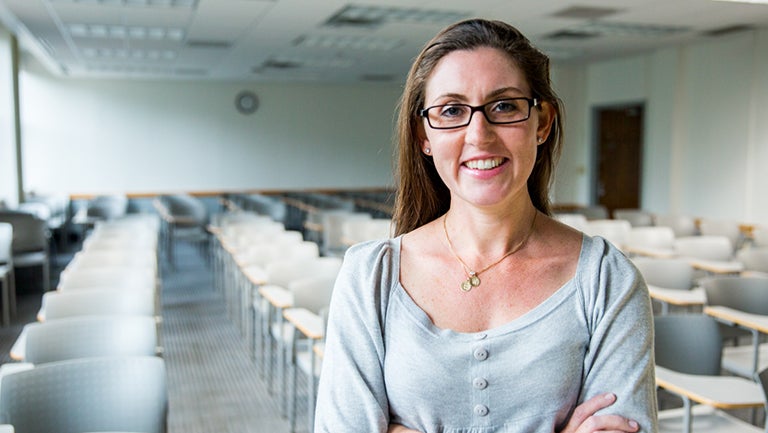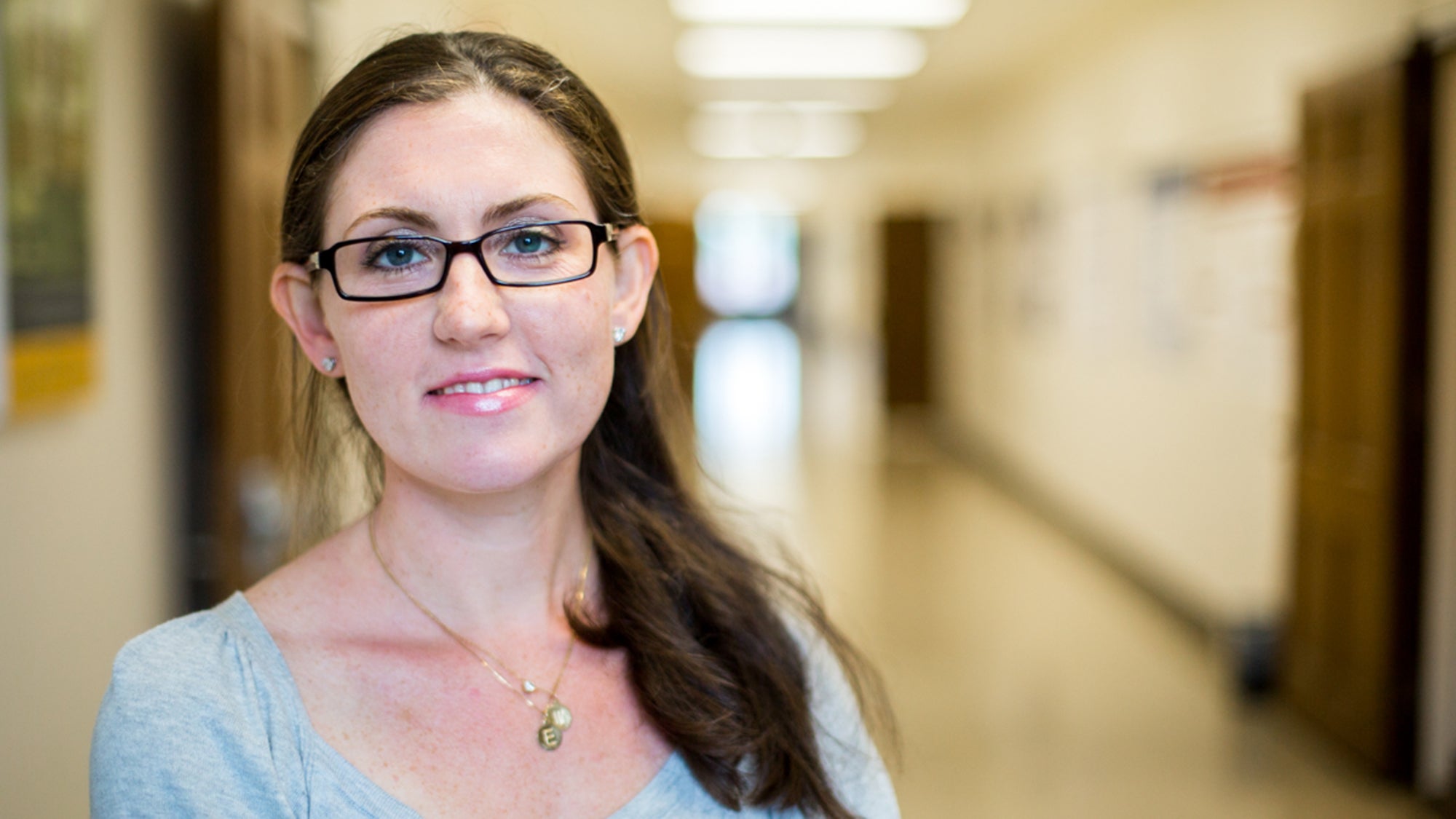bar
Georgetown continues its commitment to supporting its global mission and welcoming its international community by signing on to an amicus brief submitted to the U.S. Supreme Court. Read More

Georgetown and the National Geospatial Agency (NGA) host the fourth annual Kalaris Intelligence Conference in Gaston Hall featuring leading scholars and practitioners representing the breadth of the intelligence field. Read More
Internationally acclaimed pianist Jason Moran, who wrote music for the film Selma and who serves as artistic director for jazz at the John F. Kennedy Center for Performing Arts, has joined Georgetown as Distinguished Artist in Residence. Read More
Physics professors Jeff Urbach and Daniel Blair publish a groundbreaking paper on shear thickening fluids, also known as non-Newtonian fluids, in the journal Proceedings of the National Academy of Sciences. Read More
Two recently hired scholars are bringing their expertise in race and politics, affordable housing and feminism to Georgetown’s African American studies department. Read More
A group of undocumented Georgetown students spends two hours on Capitol Hill Wednesday night at the invitation of DREAM Act sponsor and alumnus Sen. Richard Durbin (D-Illinois). Read More

Two Georgetown psychology professors are researching the unidentified “active ingredients” of successful public pre-kindergarten programs with a $1 million grant from the Spencer Foundation. Read More

A new joint degree offered by the McCourt School and Georgetown’s Graduate Analytics program is designed to equip graduates with cutting-edge computational, analytical and governance skills for use in making better public policy decisions, finding patterns and more effectively delivering critical services such as healthcare, education and national security. Read More
Georgetown professor Fathali Moghaddam edits a new encyclopedia that takes a close look at the psychology of political decision-making by leaders of democracies as well as dictators around the world. Read More
The first U.S. study on the early educational disadvantages resulting from food insecurity is led by psychology professor Anna Johnson, who concludes that children under 5 in low-income, food-insecure households face potentially lifelong learning disadvantages. Read More




